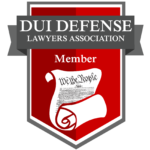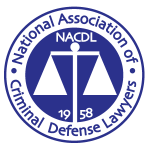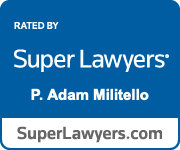“I have your back”
Keeping Statements out of Evidence: Preclusion or Suppression
If you made statements to police, there are two primary ways we can try to keep them from coming into evidence at trial.
Option 1: Keeping Statements out of Evidence by requesting Preclusion
NYS Criminal Procedure Law § 710.30 states (in part):
"Whenever the people intend to offer at a trial (a) evidence of a statement made by a defendant to a public servant... Such notice must be served within fifteen days after arraignment and before trial... In the absence of service of notice upon a defendant as prescribed in this section, no evidence of a kind specified in subdivision one may be received against him upon trial unless he has, despite the lack of such notice, moved to suppress such evidence...."
More simply, this means that if the Prosecution does not serve a notice pursuant to CPL 710.30 within fifteen days of arraignment, they cannot put statements you allegedly made to a public servant (police, EMT's, firefighters) into evidence at trial.
Prosecutors are pretty good at making sure these notices are filed, but they aren't perfect. In the last month I've had three cases where the prosecutor either didn't file a notice at all, or filed it late, or in one case argued that a police report was a 710.30 notice. (It isn't, dammit.)
Preclusion is not subject to an interlocutory appeal by prosecutors. That means that if a statement is precluded by the trial court, it can't come into evidence and the Prosecution cannot put the trial on hold while they file an appeal in a higher court. For this reason alone, preclusion is my preferred method of keeping a statement out of evidence.

Option 2: Keeping Statements out of Evidence by requesting Suppression
In the event that a prosecutor timely files a CPL § 710.30 notice and eliminates the possibility of preclusion, your attorney might move for suppression of your statements.
Suppression of statements can be accomplished when a defendant makes those statements as the result of a custodial interrogation prior to hearing their Miranda rights, or after waiving their Miranda rights. What does that mean?
It means that if you have been arrested (are in custody) and police ask you potentially incriminating questions (you are being interrogated), those statements cannot be entered into evidence at trial unless you were first read your Miranda rights (You have the right to remain silent, anything you say can and will be used against you in a court of law. You have the right to an attorney. If you cannot afford an attorney one will be provided to you.) unless you waive those rights.
Suppression can be a real challenge to achieve. Why? Under current law, unless the police officer says, "You're under arrest," or draws her gun, or handcuffs you, the judge is likely going to believe the Prosecutions argument that you weren't under arrest - you were merely being detained.
What is the difference between being detained and being arrested? Damned if I know. When a cop pulls me over with flashing emergency lights, then approaches my car dressed in black and wearing both a ballistic vest and a Smith & Wesson, then starts asking me questions about whether I have been drinking after stopping my car, I know I'm not free to leave. It certainly feels like I am in their custody and under their control.
Option 3: Can we combine suppression and preclusion?
Short answer: Not so much. There are plenty of instances where prosecutors turn over 710.30 notices that refer to some, but not all, of the statements that prosecutors want to use at trial.
In a straightforward world, courts would preclude the statements not noticed pursuant to CPL 710.30. Then, we would address the issue of whether the properly noticed statements should be suppressed. Some courts follow that path. Other courts (Monroe County courts, for example), follow the rule that once a motion for suppression has been made, you cannot also seek to preclude statements. The reasoning seems to be that a suppression hearing gives the defense an opportunity to vet all potential statements and therefore they do not need the protection of a 15-day deadline to keep some statements out of evidence.
This means that you - the defendant - and your attorney may need to talk about preclusion versus suppression. Ultimately your attorney will make the decision about which path to follow. Your input, however, can be helpful as we gauge your tolerance for risk.
We have excellent client reviews, upfront pricing and an outstanding track record of winning at trial, there is no reason not to call for a free phone conversation.
If you have been arrested for a DWI or any other crime near Rochester or Geneseo, call The Militello Law Firm. We can help, and we want to hear from you. (585) 485-0025.
Militello Law Firm
2480 Browncroft Blvd.
Rochester, NY 14625
1 University Drive
Rochester, NY 14454
Phone: (585) 485-0025
Fax: (585) 286-3128




